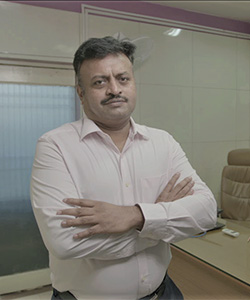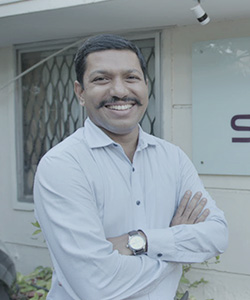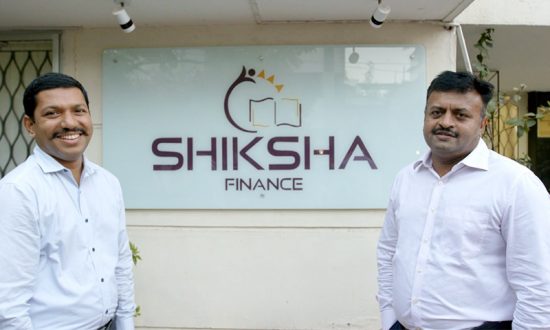During COVID-19, Affordable Private Schools (APS) in India are struggling to upgrade their infrastructure and to adapt to a new reality. Shiksha Finance, a non-bank finance company (NBFC) founded by V.L. Ramakrishnan (Ramki) and Jacob Abraham in 2014, is one of the only three lenders that serve the financing needs of APS in India. The company has financed over 2,500 schools across Tamil Nadu, Pondicherry, Telangana, Andhra Pradesh, Karnataka and Maharashtra. In the last four months, Ramki and Jacob have personally met hundreds of parents and school heads. Now, they are very well attuned to the concerns of schools, teachers and parents, and are well informed on the challenges facing APS and how they are planning to restart operations. In an interaction with Higher Education Digest, Ramki and Jacob talk about the struggles of APS to upgrade their infrastructure and to adapt to a new reality, issues faced by parents of students from low-income families due to the pandemic, support of Shiksha Finance for the changing needs of schools as well as parents, and many more.
Despite being a viable business with proven profitability, what are the significant challenges for Affordable Private Schools (APS) in India?
Ramki: Affordable Private Schools (APS) have emerged as an important alternative to government-run schools in India due to their superior quality education. However, APS have their own sets of issues. These schools face difficulties in setting optimal school/tuition fees due to government regulations. They also require funding to improve their infrastructure. APS are also faced with the three major challenges of running any school – unavailability of qualified teachers, delays in fee payments and management of students’ commute to and from school
How are APS adjusting to the COVID-19 crisis and what behaviour can be expected in the post- COVID world?
Ramki: In our experience, we have seen that APS are struggling to cope with COVID-19 as several parents struggle to pay tuition fees. In the post COVID world, APS will focus more on building infrastructure for digital education. The resumption of “brick and mortar” or traditional offline teaching will take place with adequate social distancing norms. It is likely that a shift-based education system will be introduced.
The role of digitization and technology in education today – what is the level of preparedness of APS? What are their common problems?
Jacob: As a lot of APS are struggling to stay afloat due to the pandemic, there has a general resistance to change and technology. APS are faced with various challenges concerning digitization. Firstly, the school administration does not have enough knowledge about technology and its uses for education. They are apprehensive of deploying technology for education as they do not want to incur high costs. A lot of the schools believe that the pandemic will not last long, so they are hesitant to invest in a short-term problem. Another problem faced by APS is the fact that the majority of the teachers are still adjusting to the new normal of imparting knowledge through electronic devices like computers, smartphones and tablets. Teachers doubt the effectiveness of online education versus traditional face to face teaching. APS also face issues from an infrastructure point of view, like the availability of hardware and internet connectivity.
Are teachers in APS well equipped to handle the shift in teaching online? What kinds of training for skill development is required?
Jacob: Teachers in APS are not well equipped enough to handle the shift in teaching online. They require soft skills training to get them acclimatized to the new normal. Teachers are faced with the challenge of controlling a classroom remotely and holding the attention of students. Teaching complex subjects online is difficult for them especially when interactive sessions online are often interrupted for connectivity related issues.
Teachers are used to quizzing students on current topics being covered and penalizing students in case of non-attention or bad behaviour. Due to remote teaching, these measures are often not possible. Teachers are also unable to take “surprise tests” or on spot exams to evaluate their students’ progress. A lot of the teachers we have spoken to also say that they are struggling to juggle their professional and personal lives, as online lessons from home have distorted school timings.
How are APS able to retain teachers and students?
Jacob: APS were unable to pay salaries to teachers for a while, but they have started paying the salaries that were not paid up to August. All this while, APS have been communicating to the teachers that they will be paid even if they teach online from their homes. Students are being assured that the rigmarole of exams and evaluation measures will be less stringent, given the pandemic and shift in teaching methods. APS have also been communicating to parents of students that there will not be an increase in fees this year, on the contrary, fees may get reduced. Students are also constantly assured that they can reach out to their teachers for one on one telephonic conversations to clear their queries and to make sure that their grasps on subjects remain strong.
What are the issues faced by parents of students from low-income families due to the pandemic?
Ramki: The pandemic has had a huge toll on parents of students from low-income families. In addition to their incomes being affected during this time, parents have to worry about their children’s remote education. A lot of parents do not have computers or laptops for their children’s online education. Tablets and smartphones are a luxury, and in the best-case scenario, the father in the family will have a smartphone. The children in the family take turns using the smartphone for their e-learning. There has even been a tragic case where a girl child committed suicide as she did not get her turn to use her father’s smartphone for her online class. In addition to the availability of devices, connectivity issues also arise.
Students are losing out on the comfort of meeting a teacher one on one to clarify queries. A lot of them are hoping their syllabus will be reduced once school reopens, however, this is unlikely as all topics are being covered during online classes. Students are also being deprived of social interaction like meeting friends/playing during break time and having snacks and lunch together.
What do parents think of digital/ online education? What are the barriers to access online education? What are the efforts of Shiksha Finance to address the digital divide in India?
Jacob: Parents are sceptical about online education and need time to accept its viability. The positive mindset of school owners and teachers is key for this acceptance to take place. The biggest barriers, as mentioned before, are connectivity, hardware availability, repair facilities and turnaround time for the same. Also, joint studies which generally happen in the school system are absent due to social distancing norms and pandemic fears.
Shiksha has started funding for school going students from September, and we have commenced this with an intent that the loans given by us to parents could also be used for the purchase of computers, tablets, mobile phones and for enriching the connectivity related issues like wi-fi and broadband. We have also commenced giving loans to schools for them to invest in digital infrastructure.
We are encouraging school owners to think and look at a larger picture of using digital education to supplement the normal mode of teaching even after the pandemic gets over. For parents, we are encouraging them to explore digital devices so that they can use various apps and search engines like Google for their knowledge enrichment.
Have you seen an increase in student dropouts? Do you expect more dropouts in the coming months?
Ramki: We are seeing students opting to drop out from private schools, and we see an increase in enrolments in Government and Government aided schools. Dropouts may increase if lockdown is reintroduced again, which we believe is unlikely. However, we are not seeing massive dropouts of students from schools which is positive.
How is Shiksha Finance supporting the changing needs of schools as well as parents during these difficult times?
Ramki: Shiksha has paid attention to the unique needs of its customers, both school owners and parents of students from low-income families. As mentioned, we have started providing loans to school going students from September, so that parents can ensure that their children have uninterrupted education and access to quality education is not denied due to the pandemic. These loans would help pay for tuition fees as well as any other materials needed for online education. We are also providing loans to schools so that they can tide through this crisis, improve their infrastructure for digital learning, train teachers and provide the best education outcomes.
V.L. Ramakrishnan (Ramki), Founder and CEO

A Chartered Accountant, Ramakrishnan (Ramki) is the CEO of Shiksha and oversees the broad strategy and overall business. Before Shiksha, Ramki was the co-founder and the CFO of a Suryodaya Microfinance (a leading microfinance institution that transformed into a small finance bank). Ramki has extensive experience on the ground and has over 25 years of experience in the financial services space with extensive experience in retail lending at organizations such as Development Credit Bank, GE Capital and Cholamandalam Finance.
Jacob Abraham, Founder and COO

Jacob is the Chief Operating Officer at Shiksha and oversees finance, operations and IT. A Chartered Accountant, Jacob has over 18 years of experience across finance and insurance companies, with significant expertise in finance, strategy, credit and underwriting. He has worked with Royal Sundaram Insurance, Chola Insurance, Cholamandalam Finance and PwC.




